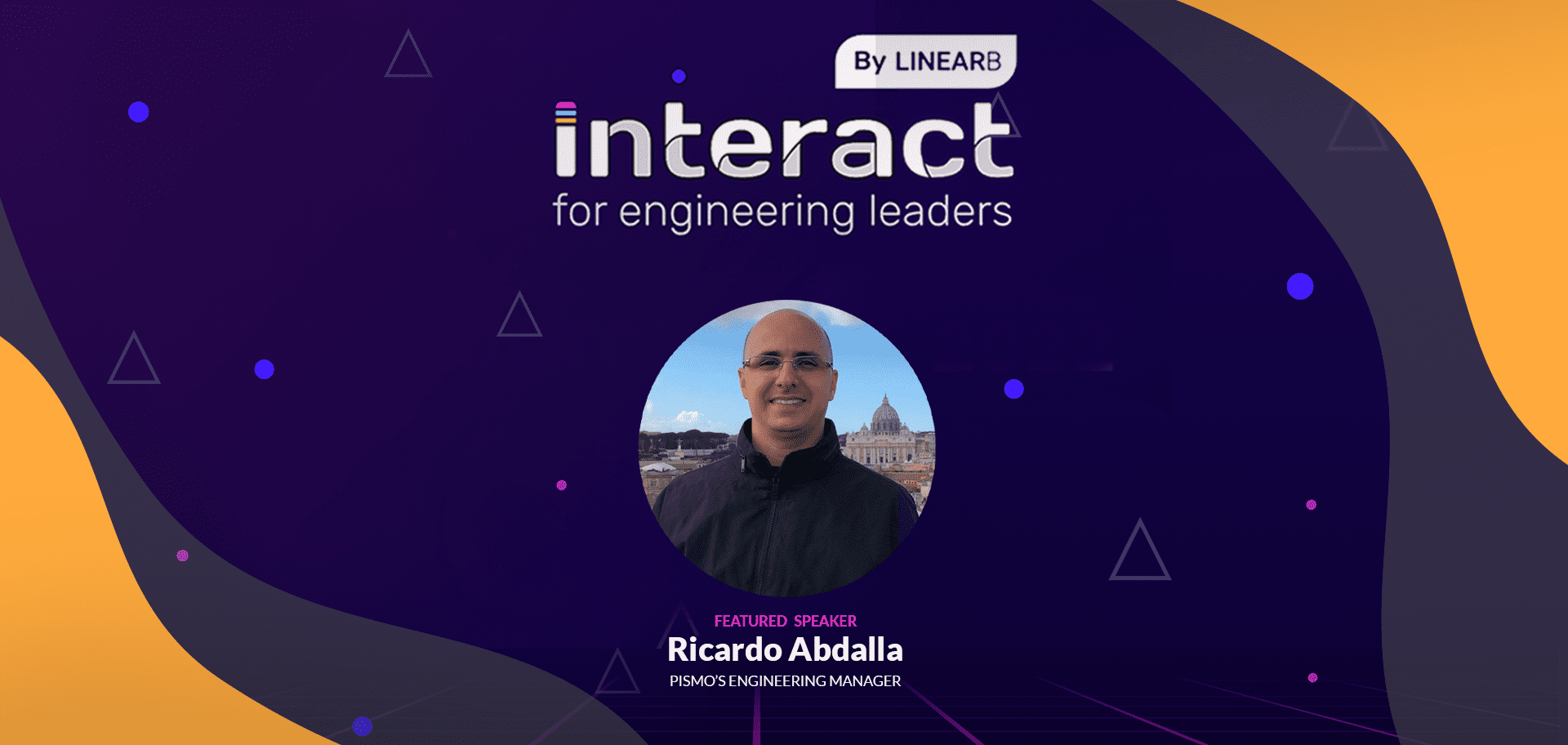Proper utilisation of metrics and data is crucial to ensuring the success of a development team, especially for start-ups experiencing rapid growth. That’s what Pismo Engineering Manager, Ricardo Abdalla, told an audience at the online event Interact this week.
Interact, organised by developer workflow firm LinearB, is described as the leading event for improving how engineering organisations work, communicate, and code. Abdalla spoke on the panel “LinearB Customers from Around the World”.
He noted some pain points Pismo has solved by deploying more actionable metrics: “In 2020, we began scaling very fast, with new engineers onboarding every week and new teams being created. The problem was each leader had their way of calculating performance – we had an absence of standards.”
Paulo Almeida, Chief Technology Officer at insurance broker Rabbit Care, also on the panel, agreed with Ricardo:
“New teams create new challenges but also provide a great opportunity to start from scratch with a certain level of standardisation,” he says. “For quite a few years, many managers collected metrics in a non-standard way. Using tools like LinearB brings more granularity.”
Another panellist was Pini Shah, Head of Engineering at logistics firm Shippo. She says getting insights into engineering workflows is critical. “Having that bird’s eye view of your organisation is important. We always want to make an educated guess about what our teams are up to.”
We measure to learn
Ricardo adds that Pismo likes to measure cycle time, throughput and activity indicators. It helps leaders to understand if something is “off-key” about the systems at play. It’s crucial, he adds, to know if any factors could lead to variability in the work a team is producing.
At the same time, he says, firms must work to ensure they distribute the workload fairly among workgroups and engineers. “Several times, prospective engineers have asked us about micromanagement,” he adds. “It’s a valid concern in this industry. I’m always very vocal that we measure to learn; we don’t measure to fire anyone.”
An effective strategy, adds Ricardo, centres around putting less effort into collecting data and more around getting consensus on how a specific metric should be calculated. “This means more energy is devoted to solving problems.”
Ricardo continues: “If some teams are facing code issues, they can spend their time training or sharing best practices. The real improvement is freeing up the time available and directing to what matters, acting on the data we are concerned about.”
“You can’t manage what you can’t measure” is a quote from entrepreneur Peter Drucker that Ricardo thinks about a lot. “Using tools like LinearB has made data more explainable and quantifiable. There’s always the possibility to learn and replicate those learnings across multiple teams.
Ricardo concludes by summing up the Pismo mindset: Build and learn with respect. “We want to achieve continuous improvement through small but practical steps.”










